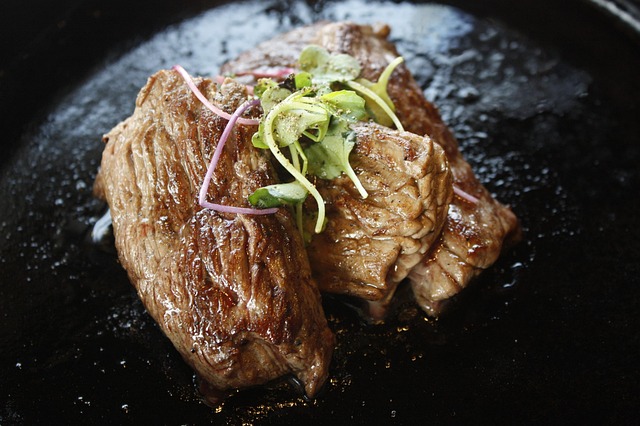What is China’s Dominant Constitution? Unveiling 4 Powerful Clues
While I’m still surrounded by unpacked boxes from a recent move, I’ve decided to pick up writing again. After all, unpacking will take a while, and the fascinating world of constitutional medicine waits for no one!
Have you ever considered that a nation, much like an individual, might have a dominant constitutional character? In any country, you will find a beautiful mosaic of people from all eight constitutional types, as defined by 8 Constitutions Medicine. Every nation is a blend of different energies and physical tendencies.
However, factors like local climate, geography, and predominant foods can cultivate a primary constitutional type that shapes a nation’s collective personality. This article explores the evidence for China’s dominant constitution, which appears to be closely aligned with the traits of Hepatotonia and Cholecystotonia—the two most populous types globally.
It is perhaps in China that we see the fundamental nature of these types preserved most clearly. Geopolitical and historical factors have given the Chinese expression of these constitutions a unique and multifaceted character.
A quick disclaimer: This article, and others in this series, is intended as a tool to better understand the different constitutions. It is not written to create or reinforce prejudice against any specific country or its people.
Let’s investigate the four powerful clues that point toward China’s dominant constitution.
Clue #1: A Self-Centered Worldview (Sinocentrism)
The first major clue is a tendency to see the world from a self-centered perspective. This isn’t simple selfishness; it’s a worldview where the self is the natural center, and everything else revolves around it. This perspective aligns with the inherent self-confidence and expansive energy characteristic of the Hepatotonia constitution.
This concept is perfectly encapsulated in Sinocentrism.
Sinocentrism (中華思想) is an ideology that views the People’s Republic of China as the cultural, political, and civilizational center of the world. The term “Zhonghua” (中華) itself means “Middle Kingdom.” Historically, nations outside this center were often considered “barbarians.” This worldview, establishing China as the domain of the “one true Emperor,” was solidified during ancient times through frequent conflicts with other ethnic groups.
This perspective implies that one’s own culture is the universal standard. In stark contrast, the traits of the Pulmotonia and Colonotonia constitutions, which are more prominent in Japan, often lead to a high degree of rule-following and social conformity. This difference in cultural mindset is a significant piece of evidence when identifying China’s dominant constitution.
Clue #2: A Powerful Ability to Accumulate and Manage Resources
If you look at the real-world economies of countries with large Chinese populations, like Singapore, you’ll often find that ethnic Chinese (Huaqiao) hold significant economic power.
This economic behavior is another major clue. According to 8 Constitutions Medicine, the Hepatotonia type is defined by a naturally strong liver, which governs the functions of “gathering” and “storing.” This translates from the physical (storing nutrients) to the material world. They tend to be quick with practical calculations and are excellent at accumulating wealth and assets, rarely letting them go once acquired.
One could argue that the inherent traits of this constitution are exceptionally well-suited for a capitalist system. This natural inclination towards accumulating and managing resources strongly suggests which constitutional profile is most prevalent.

Clue #3: A Diet That Reveals Constitutional Strengths
The Chinese love for pork is world-famous. But it doesn’t stop there. A preference for fried foods, flour-based dishes (like noodles and dumplings), and virtually all types of meat is a strong dietary indicator pointing to China’s dominant constitution.
This also helps explain the common stereotype that “the Chinese will eat anything.” This isn’t an insult, but rather a reflection of a constitutional strength. The Hepatotonia constitution is blessed with a relatively robust digestive system and a powerful liver capable of storing vast amounts of energy and detoxifying a wide range of substances. This allows them to process and derive nourishment from a much broader spectrum of foods than many other constitutional types.
[Image: A vibrant display of Chinese cuisine, featuring pork dishes, dumplings, and various fried foods.]
Clue #4: Exceptional Survival Instincts
This fourth clue is a direct result of the previous two.
When you combine a physical body that excels at storing energy and detoxifying (Clue #3) with a mental disposition for accumulating and protecting material wealth (Clue #2), you get an individual with extraordinary survival instincts.
Today, in an era of abundant food and advanced food storage, these advantages may seem less critical. However, in past eras defined by scarcity and unpredictable food supplies, these innate abilities would have provided a massive survival advantage. The capacity to endure hardship by efficiently storing every available resource—both internally and externally—is a hallmark of a resilient constitutional type. This resilience is a cornerstone of the national character and a final, compelling piece of evidence for China’s dominant constitution.
Conclusion: Embracing Our Differences
While exploring the clues, I may have focused on traits that could be perceived as challenging. It’s important to remember that the Hepatotonia and Cholecystotonia constitutions also possess wonderful positive attributes, such as natural optimism, cheerfulness, and remarkable endurance.
No single constitution is superior to another. For millennia, humanity has survived because the unique strengths of each of the eight constitutions have complemented one another. Each type, with its unique arrangement of strong and weak organs, has played a vital role in the collective human story.
We are all interconnected. I look forward to an era where we can respect the individuality of other constitutions and nations, learning from our differences and living together in greater harmony.
For the original Korean text, visit here.
If you’re curious about the basics of traditional Korean medicine and health, read the following article:
The Truth About 8 Constitution Medicine: A Revolutionary Healing Framework Explained
Learn Why Studying JangSang Medicine is Important.
Frequently Asked but Silly Questions (Foods Good for the Liver??)
